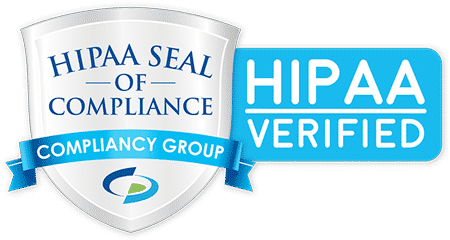
Understanding the Threat of Account Phishing
Phishing attacks are a form of social engineering cyberattack designed to steal sensitive data like passwords, financial information, and login credentials. Unfortunately, phishing attacks are often successful, and the consequences can be devastating.
What Is a Phishing Attack?
Account phishing attacks are generally executed over email, messengers, and text messages. The attacker disguises themselves as a trusted person or business and tricks their victims into opening something containing a malicious link. The contents of the phishing email or message are created to be as convincing as possible in order to get the victim to click on the link.
When the malicious link is clicked, several possibilities can happen:
- The victim will be taken to a website with a form asking for personal or financial information. Usually, the website will look like a near-exact copy of a trusted website, like a bank or a website the victim has an account with.
- Clicking the link will automatically download malware, like a keystroke logger, virus, or ransomware to the device.
- Clicking the link will install some kind of software that provides the hacker with backdoor access to the device.
What Is a Spear-Phishing Attack?
A spear-phishing attack targets a specific person or organization for a specific purpose. For example, an attacker might find the names of an organization’s marketing team and send them all an email pretending to be the project manager.
The email contains a fake invoice that looks identical to the organization’s real invoice, and has a link to a password-protected area that appears to be a legitimate company link. When an unsuspecting recipient clicks and enters their company password, the attacker receives the data and can then use their login credentials to access the company’s network.
What Are the Consequences of a Successful Phishing Attack?
At a lower level, a successful account phishing attack can give hackers the means to make unauthorized purchases, steal money, and commit identity theft. A more advanced account phishing attack can give threat actors a foot in the door to access a larger network and orchestrate a bigger attack, like an advanced persistent threat (APT).
The end result for an organization that falls victim to a phishing attack can range from financial and reputational loss to lower market share and operational disruptions. If an attacker is successful, they might gain access to your invoices, company accounts, company intranet or network, file storage accounts, or other important company accounts.

What Are Some Examples of Phishing Warning Signs?
Chances are, you’ve probably seen (and deleted) an email or message that was designed as an account phishing attack. Here are just a few different examples of these attacks.
1. An Email Is Spoofed from a Bank
In this example, a cybercriminal will send their victims an email that looks like it’s from their financial institution. The contents of the email might ask the person to click a link to log into their account in order to resolve an issue like insufficient funds or verify suspected fraudulent activity.
Emails are easy to spoof because anyone can set their email account’s name to display as anything they want. Unless the recipient clicks a few times to read the full email header and email address, they won’t know the email isn’t from who it appears to be from. This type of account phishing scam is obvious to people who don’t bank with the specific financial institution in question, but for those who do, it can be successfully deceptive.
2. An Email Is Spoofed from a Coworker
In this example, an attacker sends a malicious email that looks like it’s coming from the recipient’s coworker. The contents of the email might ask the recipient for sensitive information or login credentials.
3. An Email or Message Claims a Password Needs to be Reset
In this example, the recipient receives an email or message that appears to be from a legitimate account asking them to reset their password. If the recipient falls for this, they think they’re resetting their password on a web form when they’re actually giving the attacker their current password.
Password reset attacks usually come with a sense of urgency, like telling the victim they only have 24 hours to act before their account will be suspended or deleted. This type of pressure makes some people act fast without thinking.
Email Fraud Prevention
You can avoid falling for account phishing attacks by staying vigilant and not trusting every email you receive. If you do receive an email asking you to click a link to change your password or anything else you didn’t intentionally initiate, check the headers of the email carefully to verify the origin. Whenever possible, don’t click on any email links. Instead, go directly to the official website by typing the URL into your browser.
If you run an organization, you can help your team members avoid account phishing attacks with ongoing training that doesn’t allow them to forget about how to identify email phishing.
You can’t always prevent attacks from taking place, but you can prevent them from being successful. Since one of the potential consequences of an account phishing attack is hackers gaining access to company accounts and networks, it’s critical to authenticate users by their credentials and device.
This way, hackers can’t log in even when they have the correct login credentials, because their device won’t be authorized to access your network. You should also enable multi-factor authentication to add an additional layer of security to all logins.
Protect Against Phishing Attacks With Managed Security
Our managed security services can help you protect your organization against the consequences of phishing and spear-phishing attacks. When you work with us, you’ll already have strategies in place to prevent damage if your organization becomes a target.
For example, we’ll secure your company with software that requires multi-factor authentication and authenticates users based on their device. This way, even if an employee falls victim to an account phishing attack, the hacker won’t be able to access your company’s accounts.
Contact us today to learn more about how our managed security services can protect your organization against phishing attacks.

About Us
Since 2012, Net3 IT has offered enterprise-level IT experience and industry knowledge to help Knoxville businesses make the right decisions. We are committed to our customers’ success by providing cost-effective, high-value IT services, VOIP phone services, and strategic consulting.



